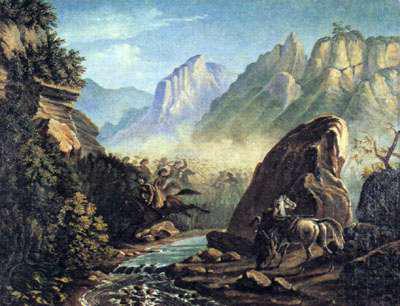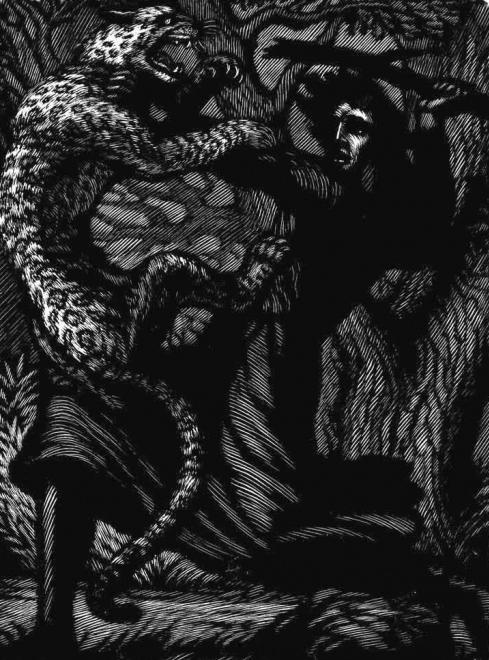The nature of the Caucasus attracted many Russian writers of the 19th century, but it made the greatest impression on Lermontov. As a child, he went to the south of Russia, where he underwent treatment. He saw the Caucasus Mountains, mighty rivers, got acquainted with the life of the highlanders. Since then, the theme of the Caucasus has become one of the favorite for the poet. The landscapes of the Caucasus are fascinating: majestic mountains tending to heaven, deep abysses, descending to the bowels of the earth. Mikhail Yuryevich reflected all this in his painting. However, numerous trips to the south of Russia bore fruit not only in the form of paintings, but also in the form of works. The most famous poem of Lermontov about the life of the Caucasus is "Mtsyri".
The basis of the plot of the poem
An analysis of Mtsyri as a romantic poem cannot be carried out without knowing the history of the creation of the work. In 1837, Lermontov traveled around Georgia, he studied local legends and traditions. In one of the monasteries, he met an old monk who told the story of his life. Once, he, the son of a mountaineer, was captured by the Russian general Ermolov. The disease caught travelers on the road, Ermolov had to leave the boy in the monastery, where he grew up. According to the story of the old monk, at first he could not get used to life in prison, even tried several times to escape to the mountains, once he nearly died. Returning, he decided to take the dignity and stay in the monastery forever.
This story made a great impression on the poet. Lermontov decided to write a poem, which he originally called "beri," which means "monk" in Georgian. And then he replaced the name with the word, which in the Georgian language has several meanings - "Mtsyri".
Formal analysis. Mtsyri as a romantic hero
“Mtsyri” in Georgian means a young man who is still preparing to become a monk, although the local population still calls him a man who came from another country. So, the protagonist of the poem "Mtsyri" is a boy who doesn’t enter the monastery of his own free will. Description Mtsyri is fully consistent with the classic romantic hero. From childhood, he stands out from his peers, with whom he does not get along. He is more serious, their games are not interesting to him. Consequently, the character of Mtsyri also refers us to the image of a romantic character. In the monastery, Mtsyri feels himself a prisoner, he is stuffy in raw cells. Mtsyri wants to escape from this life, the world that is outside the monastery seems ideal to the hero. So, in this poem, two main principles of romanticism are realized: the image of an exceptional hero in exceptional circumstances and the principle of dual peace. Romanticism is embodied at all levels of the work. Thus, the image of the nature of the Caucasus is fully consistent with the canons of this direction. Indeed, on the pages of the poem there are no ordinary paintings; we find the magnificent Caucasus Mountains, cliffs, raging rivers and dense thickets near Lermontov. The hero, wandering in the wild, hears the howls of jackals, he hears the sound of the wind, which also seems to be somehow fabulous, the water in the rivers is so clear that you can see the fish, even hear their movement.

The Mtsyri plan by chapters. Short retelling
1 chapter. Introduction. Lermontov begins by describing the scene. "... Where, merging, they make noise, Hugging, as if two sisters, The jets of Aragva and Hens."
2 chapter. In the second chapter, the author talks about how Mtsyri got into the monastery. The Russian general drove past these places and brought with him a captured boy, who had to be left in the monastery due to illness.
3-7 chapters. In these five chapters, Mtsyri, the wounded, pronounces his confession. He tells Chernets that he had felt like a captive all his life, even accuses him of having once saved him from death. After all, this act did not bring anything good: the child was doomed to loneliness (“a torn leaflet from a thunderstorm”).
8 chapter. Already in the 8th chapter, the story begins about how the hero was at liberty. Here Mtsyri told how he was free, how he felt unity with nature (".. caught lightning with his hands")
9-11 chapters. Mtsyri, who had never seen all the beauty of nature in his immediate vicinity, admired, tells the old monk what he saw: birds floating in the clear water of mountain rivers, birds singing, lush vegetation.
12-13 chapter. The hero meets a young Georgian woman. He is captivated by the sound of her singing. He saw her go to her hut, and sadness flowed in his soul. After all, he did not know his family, he did not know what a native home means.
14-15. Mtsyri got lost. In the midst of the free raging nature, he did not feel at home. Therefore, the hero weeps, which he never did in childhood.
Chapter 16 It is key to understanding the author’s ideological concept. Here the hero meets a leopard. The battle with animals is described in the next three chapters.
The last 8 chapters are the feelings of the hero. He again complains to the monk about his fate, again recalls a day spent in the wild.
The heroes of the poem "Mtsyri": the old monk, Georgian, Mtsyri and leopard. All action is concentrated around the main image. Indeed, in essence, a poem is his confession.
How to analyze a poem?
Of course, the analysis of Mtsyri should be based on the text. After all, this work is poetic, and therefore it is necessary to take into account the syllable, means of expression, rhyme. The paired method of rhyming prevails in the poem . The work is written in verse size iambic.
To correctly perform the analysis of “Mtsyri” you need to take a small passage, for example, 2-3 chapters. So that the episode is complete. Already in this passage to look for means of expression (epithets, metaphors, metonyms, comparisons, etc.): Lermontov’s text abounds with them, and quotes confirm this. “Mtsyri” text is very beautiful, it provides fertile ground for study.
Why does Lermontov choose a form of confession?
In general, the story of Mtsyri is little like confession in the literal sense of the word. The hero reveals his soul, but he does not talk about its dark sides, does not repent of any committed sins. On the contrary, he continually tries to accuse the monk of the fact that he condemned him to suffering. The Mtsyri plan, by chapters, shows that approximately in the middle of the poem, a certain dispute should have been placed with Chernets, who refused earthly goods, put up with a poor life, deprived of joys, but this does not work, because the reader hears only the voice of Mtsyri. This form allows the author to most fully reveal the nature of Mtsyri, to show its features.
The meaning of the finale of the poem
So, at the very end of the poem, Mtsyri is dying. However, he is not afraid of death, even on the verge of death, he continues to regret his life ("The grave does not frighten me ..."). Of course, such fearlessness Mtsyri causes sympathy among its creator. After all, it is dictated by a strong desire to experience true life, freedom. Being in nature, the hero felt himself a part of it, he was not afraid of either jackals or darkness. In the battle with the leopard, he showed all his frantic power, because he was stronger. The leopard, as the personification of the forces of nature, dies at the hands of the hero. Why does Mtsyri die? Is it only from the wounds that the beast inflicted on him? The death of Mtsyri has a deeper thought. After all, the wounded hero had to return to the monastery, therefore his dreams of freedom were destroyed, he could no longer hope, having lost faith, he was dying. Description Mtsyri at the time of his death is very tragic.

The pessimistic ending to the play is very characteristic of Lermontov’s work. His romantic hero never finds happiness. Therefore, the work of Mikhail Yuryevich can be called pessimistic. However, this idea contradicts the fact that Lermontov himself had a great thirst for life, a thirst for movement and passions, which he transfers to his characters.